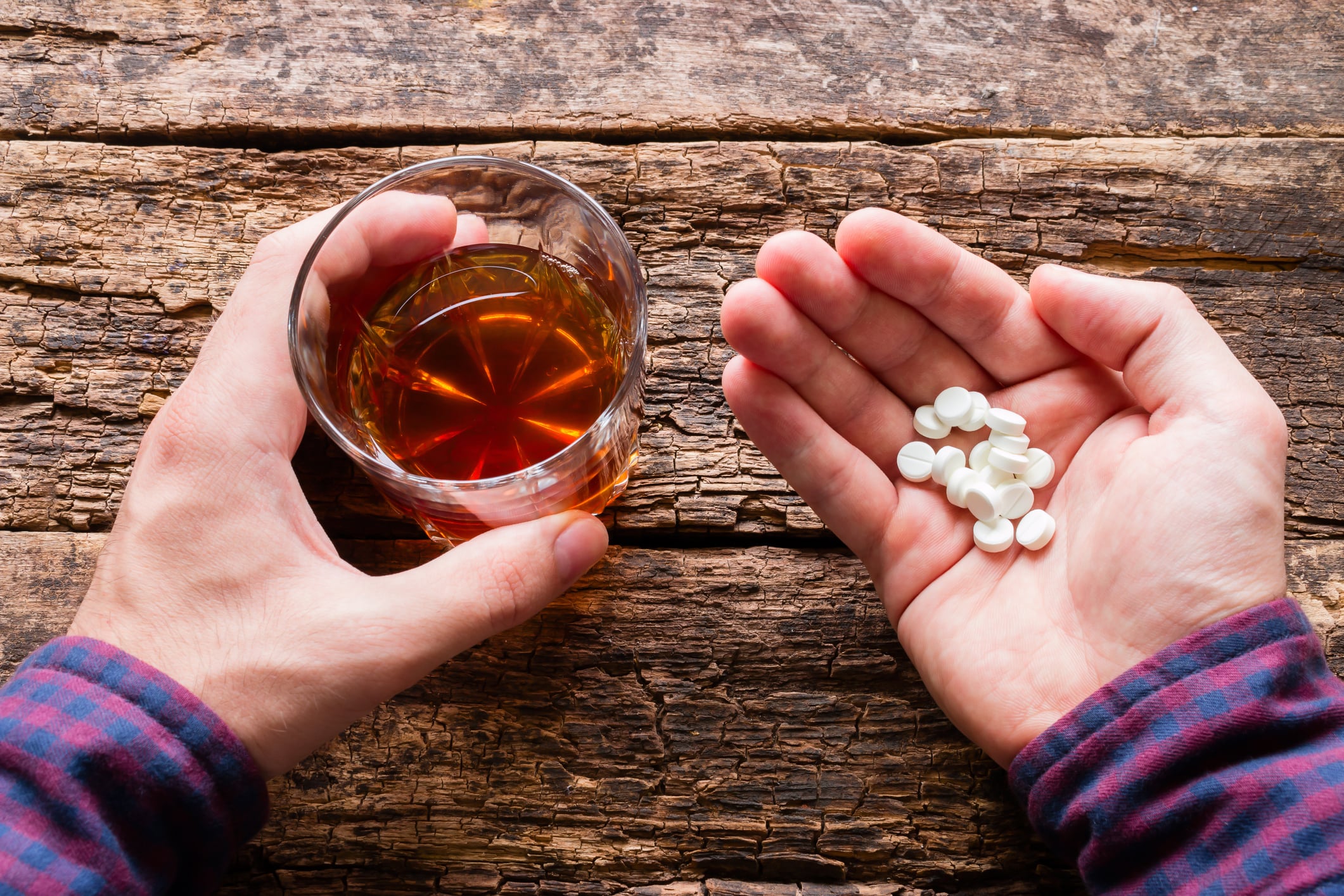Zoloft (sertraline) is a commonly prescribed antidepressant that falls into the category of selective serotonin reuptake inhibitors (SSRIs). It’s used to treat depression, anxiety, and other mood disorders. Given its widespread use, a common question arises: Can you safely consume alcohol while taking Zoloft?
It’s typically recommended that anyone taking an SSRI such as Zoloft avoid alcohol consumption. If you or a loved one are struggling with alcoholism, our alcohol rehab in Georgia can help you understand your drinking habits and learn new coping skills.
What are the Dangers of Mixing Alcohol and Zoloft?
Mixing these two can lead to and side effects. Both substances affect the central nervous system and can amplify each other’s effects. The combination may increase the risk of excessive sedation, impaired judgment, and an increased risk of overdose. Additionally, alcohol can counteract the therapeutic effects of Zoloft, potentially worsening the symptoms it’s meant to treat.
Can You Drink on Zoloft?
Medical professionals generally advise against drinking alcohol while taking Zoloft. Even small amounts of alcohol can interact with the medication, leading to enhanced side effects and potentially dangerous reactions. If you are considering drinking while on Zoloft, it’s important to consult your healthcare provider first.
How Long After Taking Zoloft Can You Drink Alcohol?
The timing of when it might be safer to consume alcohol after stopping Zoloft varies depending on several factors, including your health status, the dosage of Zoloft, and how long you have been taking the medication. Generally, it’s recommended to wait several weeks after completing Zoloft treatment before consuming alcohol. Again, consulting with a healthcare professional is crucial.
Why Do People Mix Zoloft and Alcohol?
Some individuals might mix Zoloft and alcohol without realizing the potential risks. Others might do so to enhance the effects of either substance, often due to underlying issues like self-medication for untreated symptoms or dual diagnosis disorders.
Dangers of Taking Zoloft While Drinking
The dangers of combining Zoloft with alcohol include heightened side effects such as dizziness, drowsiness, and difficulty concentrating. There’s also a risk of more severe outcomes like serotonin syndrome, a potentially life-threatening condition caused by too much serotonin in the brain.
Symptoms of Drinking on Zoloft
Drinking alcohol while taking any other antidepressant in the selective serotonin reuptake inhibitor (SSRI) class, can have several effects and potential risks:
- Increased Side Effects: The combination of these two can cause side effects such as drowsiness, dizziness, and upset stomach. When combined, these effects can be amplified, leading to enhanced drowsiness or sedation, which can be particularly dangerous when performing tasks that require alertness, like driving.
- Reduced Efficacy of Zoloft: Alcohol can interfere with the effectiveness of Zoloft. It may counteract the benefits of the medication, potentially worsening the symptoms of depression or anxiety that Zoloft is meant to treat.
- Mood Worsening: Alcohol is a depressant, and its use can exacerbate depression and anxiety, which can be counterproductive in individuals taking Zoloft for these conditions.
- Impaired Judgment and Risk-Taking Behaviors: The combination of alcohol and Zoloft can impair judgment and increase the likelihood of engaging in risky behaviors, such as driving under the influence or making poor decisions.
- Increased Risk of Overdose: There is a risk of overdose when combining alcohol with Zoloft. The effects of both substances can compound, leading to a potentially life-threatening situation.
- Serotonin Syndrome: Though rare, there is a risk of developing serotonin syndrome, a serious condition caused by excessive levels of serotonin in the brain. The symptoms include agitation, confusion, rapid heart rate, high blood pressure, dilated pupils, loss of muscle coordination, and in severe cases, it can be fatal.
- Liver Stress: Both alcohol and Zoloft are metabolized in the liver. Consuming them together can put extra strain on the liver, potentially leading to liver damage over time.
- Withdrawal Symptoms: For those who regularly consume alcohol and suddenly stop while taking Zoloft, there may be an increased risk of withdrawal symptoms, which can be uncomfortable and potentially dangerous.
Getting Help for Alcohol Addiction
If you or someone you know is struggling with alcohol addiction, especially when also prescribed medications, it’s important to seek professional help. At North Atlanta Behavioral Health, our outpatient rehab in Atlanta can help you with options that include therapy, medication-assisted treatment, and support groups.
Find Alcohol Rehab in Georgia Today
For residents in Georgia struggling with alcohol addiction, North Atlanta Behavioral Health offers specialized programs tailored to individual needs. We provide a safe and supportive environment for recovery, integrating various treatment modalities to address both addiction and any co-occurring mental health disorders. Seeking help is a critical step toward a healthier, alcohol-free life. Call us now at 770-230-5699 or verify your insurance now.













